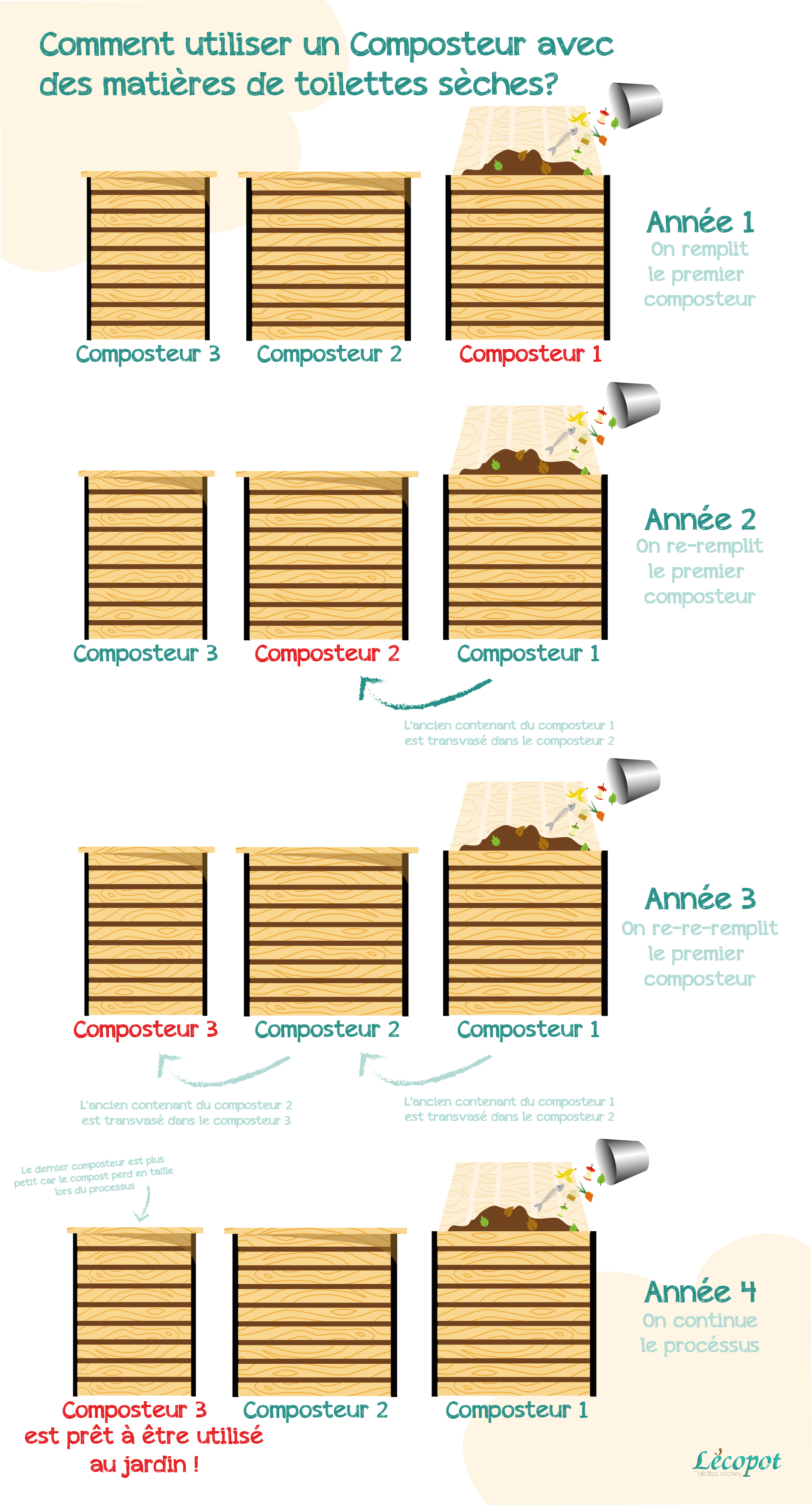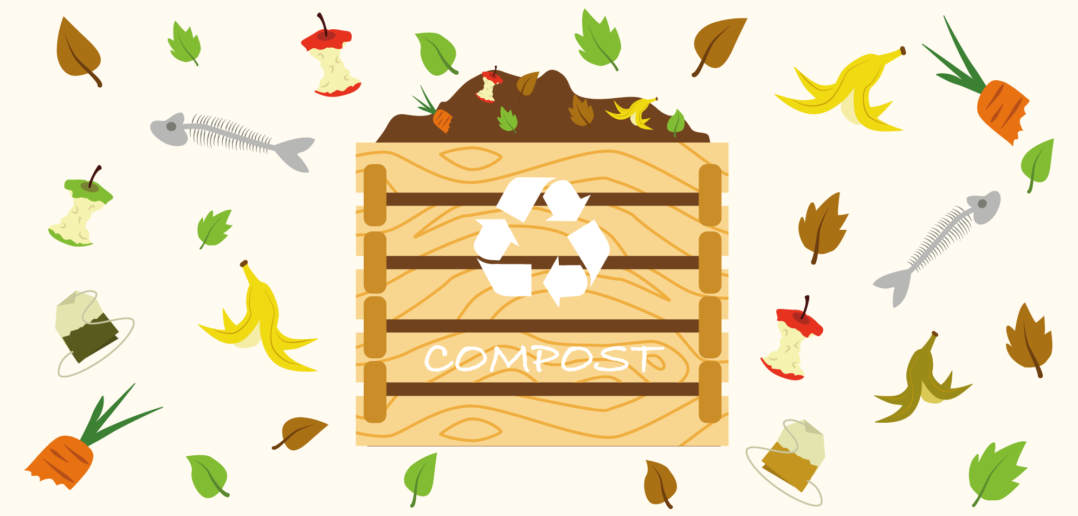The 2021 Edition of the National Neighborhood Composting Weeks will take place from March 27 to April 10, 2021. These weeks are dedicated to the promotion of composting with various events throughout France, to be found on the website :
https://www.semaineducompostage.fr
What is composting?
Composting is a natural process for recovering organic waste.
This waste is placed in a compost bin and a slow process is set in motion to produce a highly fertile material for the soil.
This significantly reduces the amount of waste in household garbage cans, lightening the burden of processing, which has a major impact on the environment.
Composting poses no risk of soil contamination, as the automatic action transforms the material through a natural chemical process.
But how does this transformation take place?
Two things are important for good compost: aeration and humidity.
These will play a role in the smooth running of the composting process.
This transformation is divided into two major stages:
- Degradation: The process of decomposing organic matter through the combined action of bacteria, water and oxygen.
During this stage, your compost will heat up to 70°! - Maturation: Compost is enriched and becomes a high-quality humus, a highly fertile fertilizer.
The presence of fungi, micro-organisms and other living organisms (such as earthworms) is quite normal and helps the process along.
Ideally, you should let your compost transform over a long period of time. This gives him time for both operations. You can also “rotate” the compost during its maturation period, by moving it from one compost bin to another, for example.
Timescales vary, from 6 to 12 months for compost without dry toilet emptying, to around 2 years for compost with emptying.
Dry toilet composting requires more time and different stages. Composting only kitchen and table waste, on the other hand, takes less time and a single composter is all you need.
Three composters are preferable for composting toilet waste, while a single multi-opening composter is sufficient for kitchen waste. This will allow you to let the first rest while you fill the second.
What if you can’t use it after two years? Don’t worry, it doesn’t have an “expiry date” and will extend its maturity.

Does this process surprise you? It’s exactly the same as that found in nature, with the decomposition of plant and even animal matter creating humus and automatically fertilizing the soil.
But what to put in the compost?
- Nitrogen-rich green matter, which tends to be moist:
Fresh plants, grass clippings, wilted flowers
Your kitchen waste: peelings, ground coffee grounds, fruit and vegetable waste… - Carbon-rich brown matter, rather dry :
Cellulose materials: paper, cardboard, tissues, etc. Rather untreated
Wood, shavings, straw
OK Compost” packaging
Eggshells - Dry toilet waste with sawdust, shavings and conventional toilet paper (preferably uncolored and untreated)
Emptying dry toilet containers is not a bad idea – on the contrary! The decomposition process, together with the presence of other bio-waste, will act chemically to hygienize the material.
Questions about composting dry toilets? This is >here<
It’s also important to keep the compost moist, well shaded and aerated. Don’t hesitate to moisten it and turn it if necessary.
Composting is not a fixed practice. It varies according to various criteria such as its quantity, the speed at which it fills up, its composition, its environment… We often have to use our logic and listen to the gardener in all of us!
Mother Nature has set up a simple and fabulous virtuous cycle: plants grow from the earth, develop, and when they die, they fertilize the soil to give birth to other plants.
So the Earth has a system for managing its own waste! Why not imitate it?
Need a composter to follow Mother Nature’s process? Visit > <
Find our compost ideas on Pinterest
